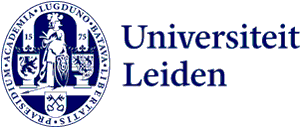
Student Johan collaborated on three books: ‘1572 was not a celebration of tolerance’
This year marks the 450th anniversary of the Capture of Brielle by the Watergeuzen (lit. ‘Sea Beggars’) and therefore the birth of the Netherlands. Student Johan Visser is contributing to no fewer than three books about the extraordinary year of 1572.
‘Specialisation pays off,’ Johan says jokingly. The ResMA History and BA Art History student is currently working on his second thesis on the year of 1572, having already completed two internships on the same subject as well. ‘During my bachelor’s, I interned at the Huygens Institute for the History of the Netherlands, where they have a database of 13,000 letters to and from William of Orange. In the following years – partially because I had seen that books with letters about Johan de Witt and Constantijn Huygens had become quite successful – I started thinking about putting together an anthology.’
Johan shared his idea with Judith Pollmann, professor Early Modern Dutch History. ‘She responded really enthusiastically, so in June 2021 we got to work.’ Together with four researchers, Johan created a selection of letters that had been sent to and from William of Orange in the year 1572. ‘During the Dutch Revolt of 1572, whether voluntarily or by force, many Dutch cities revolted. Every town has its own story. That diversity found its way into this book. William of Orange is the one person who binds all these different perspectives together. It was great fun and very instructive to figure out how to fit that into the book and to collaborate more intensively with different historians.’
Bringing attention to Zutphen
Although many students would be happy with just one book to their name before their graduation, Johan decided against focusing on just the letters. ‘My master’s thesis is about the city of Zutphen in 1572. It was recaptured by the Spanish army in November of that same year. There are stories about an enormous massacre among the civilian population, but sources give us little information about this. I am currently trying to map these events so I can better understand why the massacre was included in the canon of the Eighty Years’ War.’
The Dutch Revolt of 1572 could be described as a civil war.
The first results of his research can be found in a second book: 1572 by Pollmann and university lecturer Raymond Fagel. ‘We had a fairly clear idea of the events in Holland and Zeeland in 1572, but we knew much less about other areas, such as Friesland and the eastern Netherlands. As a student, it feels great to work closely with senior researchers and to have the opportunity to make meaningful contributions both to the research field and to public events. The year 1572 is often seen as a turning point in the formation of the Dutch Republic, but that does not mean that the year was typically marked by celebrations of freedom and tolerance. The Dutch Revolt of 1572 could be more aptly described as a horrifically violent civil war. There were many cases of families being deeply divided.’
These personal stories are the main drive for Johan. ‘I love delving into the research of sources and listening to the voices of ordinary people. The real challenge is to put your 21st-century self in the shoes of 16th-century people and imagine what it would be like to witness mass executions, rape and looting. In some sources, you find truly emotional testimonies of witnesses whose prevailing world view was simply inadequate to explain what was happening.’
Another book
All that research will result in the third and – for the time being – final book, which is to be released in October. Johan is currently working on a public version of his master’s thesis. ‘The Zutphen massacre will be commemorated with an exhibition which I contributed to as well. There will even be a theatre play partly based on my thesis. I hope my book will be in the shops around the same time as the premiere.’ And after that? ‘I would like to continue working in my discipline. Maybe at a museum, but becoming a PhD candidate is an option as well. If I were to do that, I would most likely choose a different time period.’
Would you like a chance to win a copy of Willem van Oranje in brieven or 1572? You can enter the competition via Instagram, Facebook, Twitter and LinkedIn. The Municipality of Zutphen and the Regional Archive of Zutphen are the main contributors to the initiative behind this research. While planning the commemoration activities, came to the conclusion that new research was needed.
